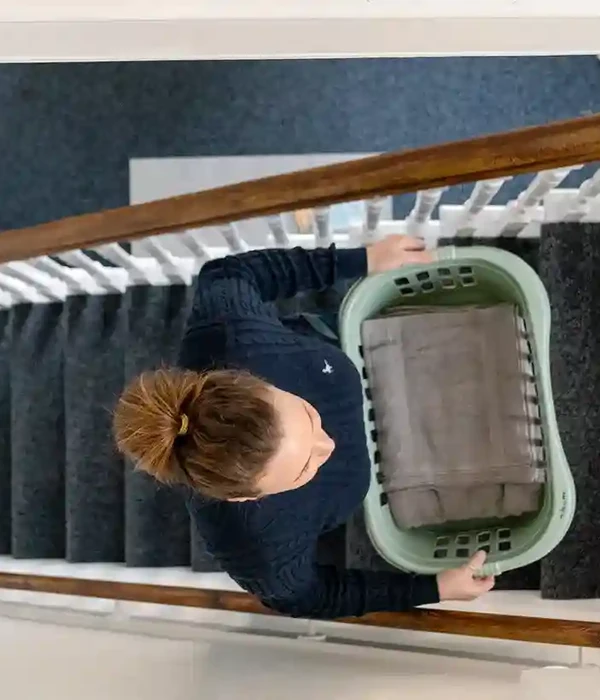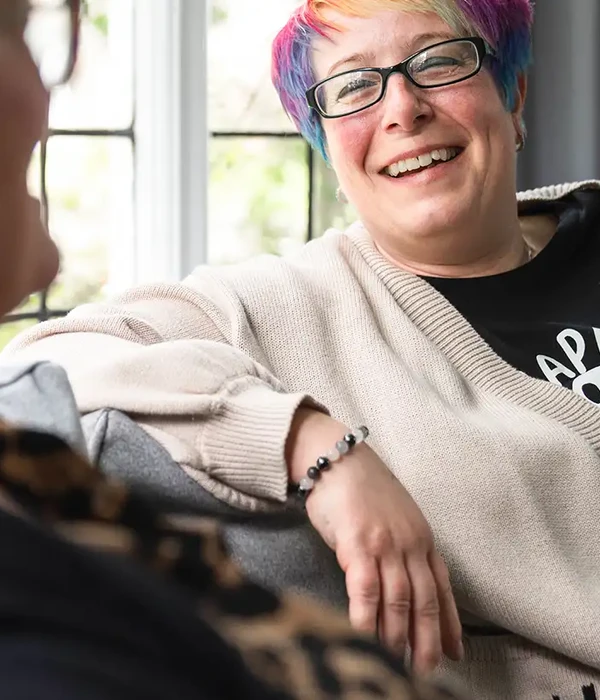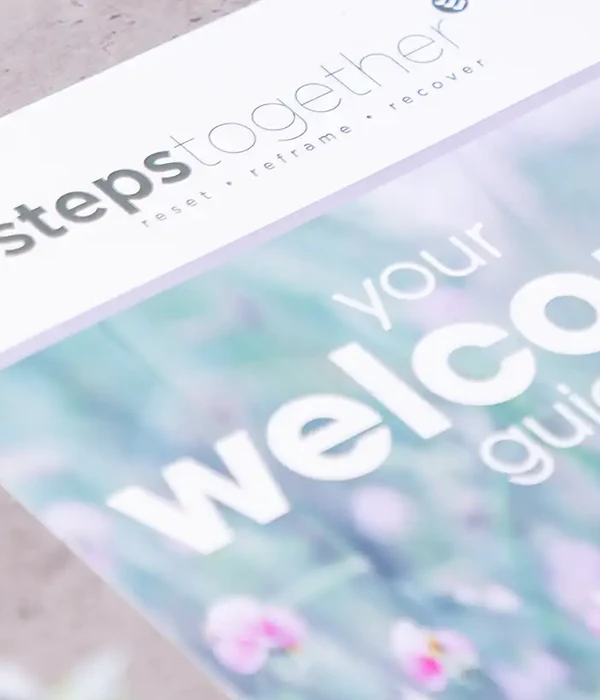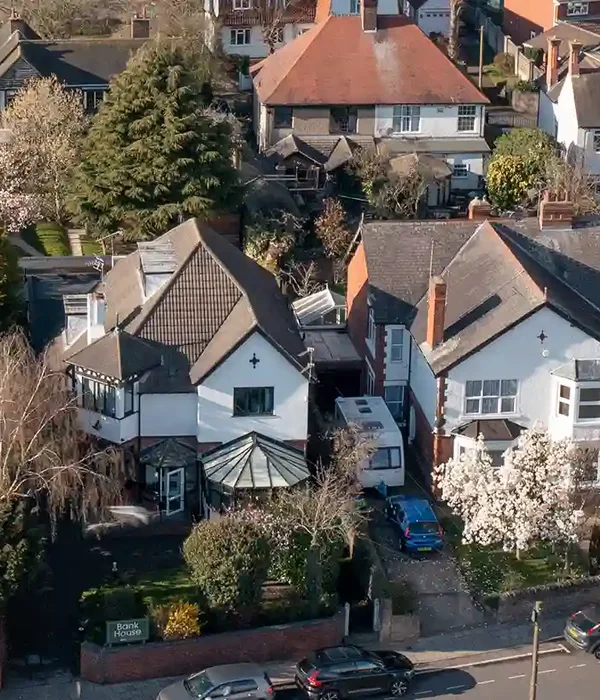Zaleplon Addiction Treatment
Zaleplon addiction treatment gives you a real chance to safely stop using this sleeping pill and regain control of your life. This type of addiction can develop when you use Zaleplon for longer or in higher doses than prescribed, often because you start to depend on the drug for sleep.
If you’re worried about your Zaleplon use, learning more about the different treatment options for prescription drug addiction can help you make the best decision for your health and future. Understanding the process can also ease worries about what to expect during recovery.

Take the First Step Towards Recovery
Steps Together offers personalised support and proven treatments, providing the care, guidance and encouragement you need to move forward with confidence and build a healthier future.

Understanding Zaleplon Addiction
Zaleplon, often known by the brand name Sonata, is a prescription sleep medication used to treat insomnia. It belongs to a group of drugs called non-benzodiazepine hypnotics and works by acting on brain chemicals that help you fall asleep more quickly.
Because it’s typically prescribed for only short-term use, problems can arise when zaleplon is misused or taken for longer than recommended. While it may provide short-term relief from sleeplessness, dependence and misuse can bring serious risks to both health and well-being.
How Zaleplon Addiction Develops
Zaleplon addiction can begin when you start taking the drug more often or in higher doses than prescribed. Over time, your body may become dependent, and you may need more of the drug to get the same effect.
Misuse can include taking it to relax, cope with stress, or simply to get high. If you find yourself obsessing over your next dose or continuing to take zaleplon even though it causes problems, these are warning signs of sleeping pill addiction.


Risks and Consequences of Zaleplon Abuse
Zaleplon abuse can affect both your body and your mind. You might experience memory problems, confusion, poor concentration, or mood swings. Physically, you can develop headaches, muscle pain, dizziness, or trouble breathing with high doses.
Long-term misuse increases your risk of accidents, falls, and even life-threatening overdoses. Dependence can also lead to withdrawal symptoms, like anxiety, nausea, and insomnia, if you stop suddenly. These effects can disrupt your life at home, work, or school.
Zaleplon Addiction Treatment
Treating zaleplon addiction involves structured rehab, various therapies, and ongoing support. Progress depends on matching the right zaleplon addiction treatment programme and approach to your needs and circumstances.
Inpatient Rehab
Inpatient zaleplon rehab involves you living at a treatment facility throughout your recovery, offering a structured and supportive environment. With continuous medical supervision, this level of care ensures your safety during detox and early recovery. You’ll participate in therapy sessions, join support groups, and activities designed to help you understand and overcome your dependence.
Inpatient treatment is especially recommended if you have a severe zaleplon addiction, co-occurring mental health conditions, or a history of relapse. It can provide the intensive support you need to build a solid foundation for long-term recovery.
Behavioural Therapy Approaches
Therapy is essential for overcoming zaleplon addiction, as well as other forms of substance use disorder. Cognitive behavioural therapy (CBT) is the most common method. It helps you spot negative thoughts, manage cravings, and change harmful habits linked to your addiction.
Dialectical behavioural therapy (DBT) focuses on improving emotional control and teaching skills like mindfulness and distress tolerance. Some programmes use individual therapy to work on personal triggers, while group sessions offer shared learning and support.
Outpatient Rehab
Outpatient zaleplon rehab allows you to live at home while going to regular appointments at a treatment facility for therapy, medical check-ins, and support. This flexible treatment option is ideal if you have a less severe addiction or if you have a strong and stable support system at home.
It enables you to continue with your daily responsibilities, such as work, school, or caring for family, while still receiving professional guidance and care. Outpatient rehab gives you access to counselling, relapse prevention strategies, and recovery resources, all of which can help you build healthier habits and reduce the risk of returning to zaleplon use over time.
Group and Family Therapy
Group therapy gives you a chance to meet others facing similar challenges. Talking with peers helps reduce feelings of shame and isolation. You also learn from shared experiences and support each other’s progress in a safe environment.
Family therapy is another key pillar in a zaleplon rehab programme. Family sessions help rebuild trust, improve communication, and involve loved ones in your recovery from zaleplon dependency. This is vital when addiction has strained your home life and relationships.
Other prescription drug addictions we treat

Zaleplon Detox
Detoxing from zaleplon means you need to slowly remove the drug from your system under supervision. Withdrawal can be uncomfortable and often includes sleep issues like rebound insomnia, anxiety, and cravings. A medical detox is important because stopping zaleplon suddenly can lead to serious withdrawal symptoms.
These withdrawal symptoms may include anxiety, trouble sleeping, mood changes, nausea, headaches, and strong cravings for the drug. Because withdrawal can develop quickly and sometimes be severe, you should never attempt to detox at home without support. Under medical supervision, health professionals will create a structured zaleplon detox plan for you.
Managing Withdrawal Symptoms
Managing zaleplon withdrawal symptoms often needs a mix of medication support and behavioural therapies. Medical teams may use short-term medicines to ease anxiety or help with nausea and headaches. However, these are used carefully to avoid swapping one dependence for another.
Therapies, such as cognitive behavioural therapy, help you learn new ways to manage insomnia, cravings, and stress. Simple lifestyle changes, like keeping a regular sleep routine, avoiding caffeine, and practising relaxation techniques, can also help your body recover and restore natural sleep rhythms.

Identifying Zaleplon Addiction Symptoms
Physical signs of zaleplon addiction can include tiredness during the day, poor concentration, and headaches. You may also notice dizziness, trouble with coordination, or slurred speech even hours after taking the medication. These symptoms usually become clearer as your body builds tolerance.
Psychologically, many people experience strong zaleplon cravings and struggle with anxiety when a dose is missed. Sleep may become impossible without the drug. Over time, you might find your mood worsening and feel more irritable or depressed. Changes in memory and confusion are also possible.
Your behaviour may change in several ways if you’re addicted to zaleplon. You might begin taking higher doses than prescribed or use the medicine for longer than intended. Some people go to multiple doctors or pharmacies to get extra prescriptions.
Long-Term Help for Zaleplon Addiction
Preventing relapse after Zaleplon addiction treatment takes planning and effort. Staying drug-free long term often means using new coping strategies and having the right people around you for support.
Aftercare and Continued Support
Aftercare is crucial for preventing relapse after formal zaleplon rehab finishes. Programmes usually include regular follow-up sessions, ongoing therapy, and access to peer support groups. Some clinics may offer both in-person and online options to keep you connected.
Support networks often include 12-step groups. These ongoing services make it easier to manage stress, setbacks, or cravings that can arise after rehab. Many aftercare plans also encourage healthy lifestyle habits, such as regular exercise, mindfulness practices, and good sleep routines.
Building Emotional Support Systems
Long-term zaleplon recovery is easier with the right emotional support. People recover better when they feel understood, encouraged, and have someone to talk to during hard times.
You may also benefit from ongoing treatment for zaleplon addiction to address underlying problems or mental health needs. Building trust with others and asking for help when you need it is a major step towards a healthy, drug-free future.
Coping Strategies After Treatment
Developing new habits is key to zaleplon relapse prevention. Common triggers for drug use include stress, boredom, and certain people or places. Early warning signs, like cravings or negative thinking, can signal that you are at risk of slipping.
Having a strong aftercare programme focused on relapse prevention provides extra help during times of stress. These strategies allow you to manage life’s pressures without returning to zaleplon use.

Treatment for Zaleplon Addiction and Sleep Well
Maintaining your health and wellbeing often involves managing stress and other challenges, and some people turn to medications like zaleplon for support. While it can be helpful in the short term, dependence can develop over time, leading to a cycle that’s difficult to break.
At Steps Together, we offer zaleplon addiction treatment and drug rehab options to help you safely withdraw from the medication and regain control of your life. Recovery is possible, and we’re here to support you towards lasting change.
Frequently Asked Questions
What are the standard approaches to treating dependency on hypnotic medications?
Most people begin with a supervised detox to safely stop taking the medication. This is followed by counselling or therapy to address cravings and triggers. Prescription adjustments or gradual dose reduction are often used to lower dependence risk.
What symptoms may indicate the presence of an addiction to sleep medications?
You might notice needing more medication to sleep or feeling anxious if you miss a dose. Other signs include cravings, using pills in ways not intended, or continuing despite negative effects on your health or daily life.
How does therapy contribute to the recovery process from sedative dependence?
Therapy helps by teaching you coping skills and offering support as you adjust to life without the drug. Structured sessions may focus on stress management, sleep habits, and relapse prevention. Programmes at rehab centres use therapy to address both physical and mental dependence.
Can long-term use of sleep aids lead to addiction?
Yes, taking sleep medications like zaleplon for longer than prescribed can increase your risk of dependence. Over time, your body may need higher doses to get the same effect, which can cause tolerance and addiction. Using them outside your doctor’s guidance is especially risky.
Are there any risks associated with suddenly stopping the use of sleeping pills?
Quitting sleep medications suddenly can trigger withdrawal symptoms such as restlessness, anxiety, shaking, or trouble sleeping. In some cases, seizures or severe mood changes may occur. Detox should be medically supervised for safety and comfort.
What alternative treatments are available for managing insomnia without the use of addictive substances?
There are several non-drug options, including cognitive behavioural therapy, sleep hygiene education, and relaxation techniques. Regular exercise, setting a sleep schedule, and reducing screen time can also improve sleep naturally.





